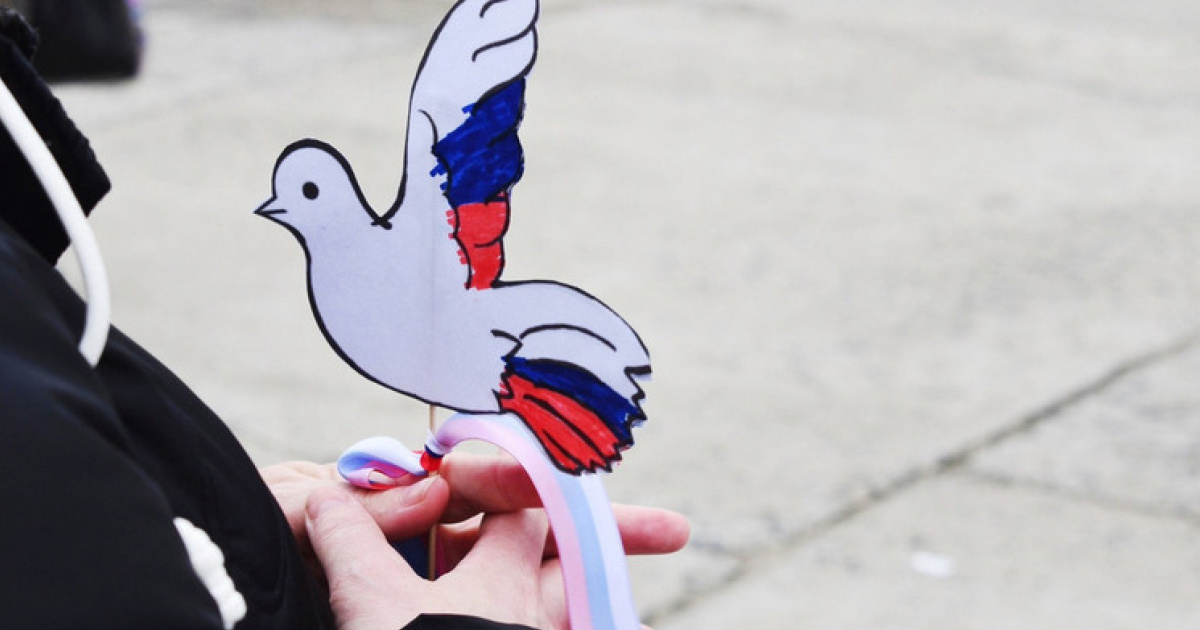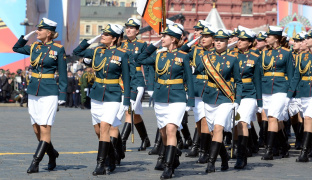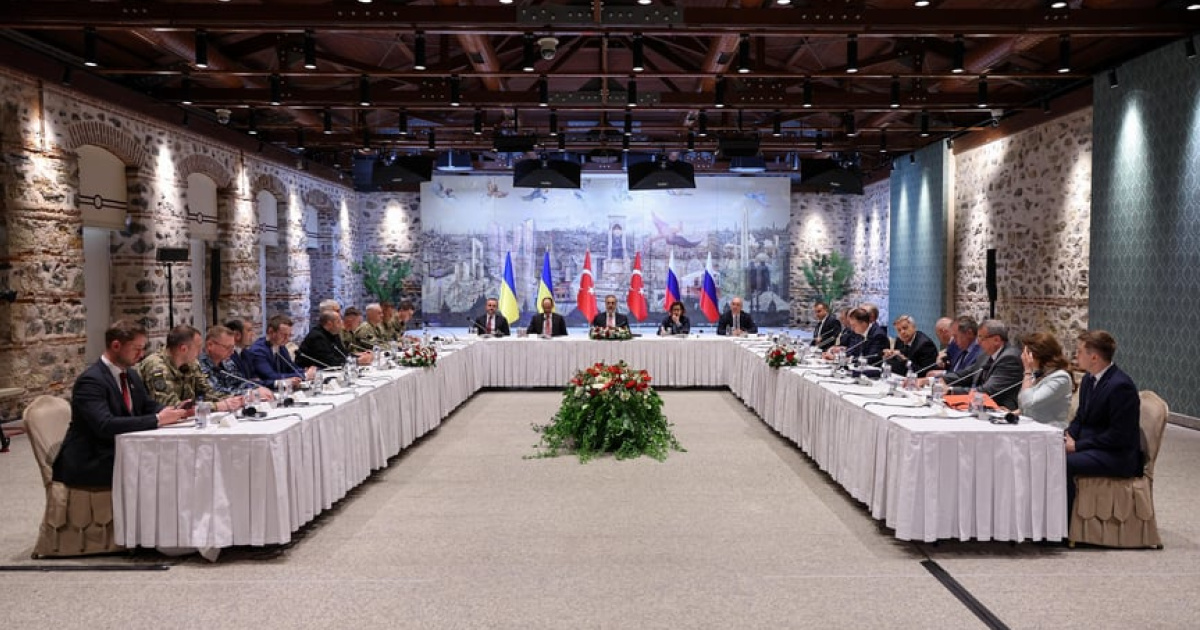When I'm asked to talk about the roots of the 9 year long crisis that has been killing the once most densely populated industrial region of the USSR, the question is generally phrased as follows: "How did russia take Donbas?" It offends me. Such phrasing deprives Ukraine of subjectivity, as if it were a passive object from which anyone can take anything they want.
Moreover, this phrasing absolves Ukraine of responsibility for what is happening on its territory. And if we don't realize our mistakes, there will be no salvific conclusions capable of freeing the eastern Ukrainian region from the relapse of conflict in the future.
Therefore, this article is not about "how russia took...," but about how Ukraine gave away Donbas to russia. Because putin used the opportunities that we, Ukrainians, gave him. Of course, this does not absolve russia of responsibility, behaving like a thug attacking the weak. But the weakling, who instead of strengthening his spirit and body, sat on the energy and financial drugs supplied to him by the thug, is also not a random victim.
It's a shame that the realization of these terrible mistakes has to be made against the backdrop of hundreds of thousands of deaths. But even worse is that people who find it psychologically easier to blame anyone but themselves for their troubles (putin, russians, russian speakers...) are not correcting, but exacerbating these mistakes right now...
"Donbas is pro-russian" is a myth!
It is commonly believed that Donbas has always been pro-russian. This is a myth! Let's start with the fact that during the 2001 population census in Donetsk oblast, 56.9% identified themselves as Ukrainians, while only 38.2% as russians. In Luhansk oblast, 58% identified themselves as Ukrainians, and 39% as russians.
It is important to understand that the urban population of Donbas (which comprises 90% of the region) was formed in the second half of the 19th and early 20th centuries during the industrial revolution and Soviet industrialization. The rapid development of industry led to a sharp increase in population, which moved to Donbas from all over the empire and later the USSR. Some went there for economic reasons, while others fled problems (such as the policy of dekulakization). This created a melting pot of peoples, in which the concept of nationality became very conditional and was determined by the will of the passport holder. If we add to this the mixed marriages with locals (and in the villages of Donbas, Ukrainian is still predominantly spoken), then each person decided how to identify themselves in the questionnaire. Since it was prestigious in the USSR to be russian, people with Ukrainian surnames became "russians", and the majority of such "russians" had never been to russia.
This is important because in such a situation, the 2001 population census provides a picture not so much of the region's ethnic composition, but rather of its population's self-identification in the first decade of Ukraine’s independence. I am sure that if the next census had taken place in 2012, during the European Football Championship, some of whose matches were held in Donetsk, many more people would have identified themselves as Ukrainians.
So, Ukrainian Donbas was never pro-russian. But then what was it?
Donbas and independence
The miners' strike in Donbas, which began in March 1991, essentially became one of the key elements in Ukraine's acquisition of independence. Among their demands were "providing constitutional status to the Declaration of State Sovereignty of Ukraine" and "creating a Council of Confederations of Sovereign States with the powers of a coordinating body".
However, the miners themselves did not hide the fact that the appearance of their political demands was not due to the awakening of national consciousness, but rather due to the inability of the leadership of the USSR to meet their economic demands. It was the worsening economic conditions of life and the total shortage of goods that forced the miners to protest in 1989-91.
By the way, one of the first results of the 1989 strike was the adoption by the Supreme Council of the Ukrainian SSR of the Law "On the Economic Self-Sufficiency of the Ukrainian SSR". This indicates that local (party and industrial) elites saw their interest in the collapse of the USSR. And also, primarily from an economic standpoint.
The thesis that "Ukraine feeds the entire Soviet Union" played far from the last role in the fact that in the referendum on Independence of Ukraine in December 1991, 83.9% of those who participated in the Donetsk oblast voted "for it". 12% were against independence. In the Luhansk oblast, these figures were, respectively, 80.65% and 13.4%. Only Crimea and the Odesa oblast had fewer supporters of independence.
That is, due to the peculiarities of the formation of the population, its industrial and urban specificities, the Donbas simply could not perceive the Ukrainian national idea at the level of language or history, as it was in Western Ukraine. In the Donbas, the Ukrainian national idea was seen not as language and Bandera, but as economic prosperity and strengthening of democracy in the form of the influence of the labor movement on all life processes. In other words, bread and respect. This is the feature of this region. It is neither good nor bad, it did not need to be evaluated, it simply needed to be accepted as a historically formed objective fact. And taken into account in the formation of further state policies in Ukraine.
Moreover, it is worth noting that the Donbas has never been hostile to the Ukrainian language or the traditional vyshyvanka shirt. In 1990, the Strike Committee of miners, together with the Donetsk Society of the Ukrainian Language, demanded that the authorities solve the problem of opening the first in the city secondary school with the Ukrainian language of teaching.
"Red directors" and separatism
And then there was another strike, already in independent Ukraine. In 1993 it was caused by a sharp rise in prices and debts for wages. Miners put forward eight demands regarding an increase in the minimum wage, payment in cash, a reduction in the percentage of deductions to the budget of Ukraine, indexing of wages, etc. Otherwise, they demanded to stop the transfer of funds from the region's banks to Kyiv. Metallurgists, chemists, mechanical engineers and others joined the strike.
According to the requirements, such as the return of fines for exceeding consumption quotas, subsidies, and so on, it was obvious that behind the workers stood a directorate of striking enterprises. These were the so-called "red directors" - they received their positions and statuses during the Soviet era and the Communist Party, and in the conditions of weakening central power, they gained increasing influence in the regions.
Interestingly, only the "directors’" demands were really satisfied. And it's not surprising. At that time, the Prime Minister Leonid Kuchma was also a "red director". And the first Deputy Prime Minister was the former director of the Zasyadko Donetsk coal mine, Yukhym Zvyahilsky...
Another interesting point: practically on the day the strike began, the Donetsk Regional Council (composed mostly of the same "red directors") supported the demands of the miners and, "under cover" put forward its own demands - to keep 70% of earned funds in the region, and to transfer the control of 400 major industrial enterprises to the region.
In other words, after the collapse of the Soviet Union and in the conditions of weak power in Kyiv, local elites, who at that time were represented by the "red directors", used the workers' movement to fight for money and power in their own regions. Nobody called on russia at that time! Why? Simply because russia itself was in a difficult economic situation. Yeltsin’s instability frightened the locals no less than the Ukrainian one. The second factor was that russia itself was more preoccupied with itself than with its neighbors. And the third, most important factor - the "red directors", like most of the population of the Donbas, were mentally Soviet, not russian!
Language and political issues in Donbas were first raised in 1994. And it wasn't workers' movement initiative, but yet again it came from the regional councils of Donetsk and Luhansk oblasts. That year, simultaneously with the elections to the Verkhovna Rada of Ukraine, "consultative surveys" were conducted in the two eastern regions about the federalization of Ukraine, the russian language as the second state language, the status of the russian language on par with Ukrainian in business, education and science in Donetsk and Luhansk oblasts, as well as deeper integration into the CIS. 80-90% of voters answered "yes" to all questions. The unofficial slogan of that campaign was a modified "Ukraine feeds the USSR", now rephrased as "Donbas feeds Ukraine". The people, naturally, fell for it. Especially in conditions when it was not Kyiv, but the director of your local plant who determined whether you would have anything to feed your children with or not.
At first glance, all of this looks like regional separatism. Some people in the Ukrainian-language segment of the Internet even see its cause in the "russianness" of the region. But in essence, the local elite behaved similarly, and for the same reasons, as the republicans did in the early 1990s when Ukraine was leaving the Soviet Union. Against the backdrop of the center's inability to ensure social and economic stability for the population, and feeling an opportunity to strengthen their own economic and political power, regional elites began to close themselves off and keep everything to themselves, essentially wanting to maintain the status quo. That is, the same living conditions under which they obtained their elite position.
If Kyiv had been able to stabilize the economic and political situation in the country at that time, local elites would not have had to save themselves by grabbing a lifeboat on a sinking ship. Even the thesis of deepening integration with the CIS was motivated not by sympathies towards russia, but by a desire to preserve the Soviet production ties that provided jobs for Donbas enterprises and, consequently, money for its leaders.
Such behavior patterns were natural for all regional elites not only in Ukraine, but also in most post-Soviet countries. Only those who had the economic prerequisites for it could afford to indulge in them. The most industrialized and densely populated region of Ukraine had them.
Defense, attack, resentment
But very soon "separatism" was discarded as unnecessary. After the 1994 elections, when the Donbas elite saw the mechanism for spreading their influence throughout the country, they began to focus not on the "lifeboat", but on the captain's bridge of the entire ship. At that time, billboards appeared with the slogan "In Kyiv they make politics, in Donetsk they make money". The first and most powerful corporations in Ukraine emerged: Aton and ISD, which took control of the supplies of russian gas to the region's industrial enterprises and the sales of their products. A new elite began to take shape - those who would later be called the "Donetsk clan". Their political wing was represented by the first "Donetsk" all-Ukrainian party - the Liberal Party of Ukraine. Very quickly, it became one of the most active and influential in Ukraine. The actual leader of the LPU was the first Ukrainian public oligarch, Yevhen Shcherban. A businessman-innovator, he truly espoused liberal values and thought within the scale of the whole country. Successful, young, charming, progressive, and super-rich - many politicians in Ukraine bet on him. The parliamentary faction of the LPU included well-known all-Ukrainian politicians, such as Yevhen Marchuk...
However, in 1996, upon returning from Kobzon's birthday celebration in moscow, Yevhen Shcherban was assassinated right at the airport. Shortly before this, Volodymyr Shcherban, his namesake and like-minded individual, had lost his position as head of the Donetsk regional administration. The Donetsk liberalism, which had replaced the "director's separatism", was completely crushed. And all of this was happening against the backdrop of open hostility with the "Dnipropetrovsk clan", which was then represented by Leonid Kuchma and Prime Minister Pavlo Lazarenko... In other words, this was the first Donetsk’s defeat in the interregional struggle. And they drew conclusions from it.
On the ruins of the Shcherban’s empire soon rose another, even more brilliant star - Rinat Akhmetov, on whose orbit Viktor Yanukovych "was being inflated with gas". However, this modification of the regional elite had far from market roots and professed values that were not at all liberal... Having a criminal past, they quickly took total control over the local media and political "fauna". And after Donbas secured Leonid Kuchma's second presidential term in 1998, they received almost a monopoly on the region and its resources from him.
From that moment and up until 2014, the Donetsk and Luhansk elites systematically cultivated regional patriotism that allowed them to control their population and, thanks to the electoral density of the region, gain significant political influence in the country. The basis of this "patriotism" was resentment and a sense of danger emanating (according to previous experience) from other regional clans. Even questions about the russian language, which were invariably raised in all local election campaigns, were oriented towards manipulative protection of local specifics, rather than the interests of neighboring states.
But the worst thing in this situation was that the "regional idea" was the only alternative in eastern Ukraine. Starting from the late 1990s and up until 2022, other parties and ideologies practically "gave up" on the Donbas to avoid risking confrontation with the dangerous "Donetsk" representatives. Most regional and city organizations of all-Ukrainian political parties, even oppositional ones, closely cooperated with local authorities and, in essence, were their puppets. Worse still, their activities often boiled down to "technical" participation in election commissions and "selling" districts to candidates from the same regional groups. In 2014, this will turn against Ukraine and against the Donetsk "elite" itself. But once again, there were no mass pro-russian sentiments in the Donbas before 2014!
However, the key word in the last statement is "mass", because objectively, the number of people who sympathized with their eastern neighbor in the 2000s was increasing. And not just in Donbas! This was again due to domestic political and economic problems in Ukraine itself.
Let's just compare the late 1990s and early 2000s in Ukraine and russia. Kyiv faced a scandal with the murder of journalist Gongadze, shock from audio tapes proving the involvement of the country's president in it, the exhausting "Ukraine without Kuchma" campaign, powerlessness and uncertainty. And moscow had a young, strong-willed president who could eloquently speak and effectively solve problems.
Donbas struggled with the closure of enterprises, unemployment and low wages. And neighboring countries, especially their capitals, had plenty of jobs and higher salaries.
It is clear that residents of Donetsk and Luhansk oblasts began to go to russia to work. Not because of the language or love for the culture, but because it is closer. By the way, residents of Western Ukraine acted similarly for the same reasons. Only they were lucky – they have a border with Poland, not russia. These are objective and forced processes. It is unlikely that people who went abroad for work (whether to russia or Poland) would abandon their families if they could support them by working in their hometown.
But once again - all of this was at the household level. In politics, all pro-russian parties (such as the russian Block and Civil Congress), which had some presence in Donetsk in the 90s, had simply dissolved by the mid-2000s. This was also due to the efforts of the local elite! Those few strange-looking individuals with weird flags who annually gathered at the Artem monument in Donetsk to celebrate the anniversary of some Donetsk-Kryvyi Rih Republic were perceived as urban lunatics...
Even if we recall the events of the Orange Revolution and the political-technological split of Ukraine into West and Southeast, it was not aimed at creating pro-russian sentiments, but rather at mobilizing Yushchenko’s and Yanukovych’s electorates. Essentially, both candidates' staffs used this technology, with one printing maps of Ukraine divided into "categories" while the other printed this map and talked about how evil were the former...
In other words, these were games played by the Ukrainian political class (although invented by russian political technologists from the Party of Regions), but it was precisely this inter-regional tension and the cultivation of myths that fueled it (primarily about the "pro-russian sentiment of Donbas" and the "Bandera supporters"), that in 2014 became the yeast that raised the "russian world" in Donbas.
In turn, in western Ukraine, they stigmatized the population of Donbas, turning them, all at once, into almost enemies.
This did not happen at moscow's will. It was done because it was beneficial for Ukrainian politicians, both in the west and the east, and in Kyiv...
With putin's rise to power in 2000, moscow began systematically fueling these myths through television channels it controlled and through various forms of bribery of Ukrainian elites. The 2013-14 Maidan Revolution, triggered by Yanukovych and his "clan's" actions, became a new generator for these myths, both in the east and west of the country.
By the time Kyiv "exploded", dissatisfaction with Yanukovych had already taken root in Donetsk. Businesses, which suffered from the arbitrariness of the "clan", and ordinary people who waited for, but did not receive, improvements in their lives from "their" president, were also unhappy. But Maidan was viewed in Donetsk not as a struggle for the country's geopolitical vector or justice, but as another attempt to humiliate the region and take away what had been "earned through hard work". These concerns were not unfounded, since in Ukraine, the redistribution of markets and the destruction of competitors after a change of political power is commonplace.
The tragic mistake of the eastern Ukrainian elites was that in February-May 2014, they saw the threat only from Kyiv, but did not see the threat to themselves from moscow. And when they finally saw it, it was too late...
Another tragic mistake of the Ukrainian state was the absence of state institutions in the region. That is, they existed formally, but in fact, they were subordinate not to the state, but to local elites mentioned above...
And not really a mistake, but rather a russian special operation connected with selfless ignorance, was the cancellation of the Law "On the Principles of State Language Policy" by the Verkhovna Rada on February 23, 2014, on the wave of the revolutionary victory in Kyiv. The law was adopted in 2012 by the efforts of the Party of Regions and guaranteed the use of a language that 10% of the region's population considered native, on par with the state language in that region.
It should be noted that in practice, this law was almost never enforced, but politicians, both from western Ukraine and southeastern Ukraine, always used the language issue as the most sensitive for their electorate, so the adoption and cancellation of the law were presented as acts of symbolic victory of one side over the other. The most interesting thing is that the acting President of Ukraine, Oleksandr Turchynov, did not sign the Verkhovna Rada's decision, but it was no longer important for anyone. Russia immediately used this trump card. The "cancellation" of this law and the campaign to dismantle Lenin monuments became that emotional trigger that exacerbated the long-cultivated feelings of offense and danger in the Donbas.
If the parliament had started not with language and monuments, but with improving people's welfare, for example, with a noticeable increase in pensions exceeding the russian level, then everything could have been different. And the really "strange" Kolesnichenko-Kivalov law could have been cancelled later, but...
Why do I think that the cancellation of the language law at that particular moment was a russian special operation? Because the Transnistrian conflict in Moldova developed according to exactly the same scenario: monuments, language law, and columns of security forces sent to cities that disagreed with such a policy.
In the case of Donbas, there were no such columns, they were invented. The Secretary of the Donetsk City Council (who is now in russia, of course) spread information about columns supposedly moving towards Donetsk with "Bandera supporters" who were going to seize control of the region's government. In response, protesters, inspired by russian "volunteers", took over these buildings themselves...
In general, the same scenario as in Transnistria. And neither Kyiv nor Donetsk could not have been unaware of this. Both sides played it out themselves, as each was confident they could control this conflict and use it to their advantage. They thought putin would stop at Crimea...
Russians or russian citizens?
But then who was shouting "Putin come!" in Donetsk and Luhansk in 2014?
Firstly, those who, when asked "what time is it?" gave moscow time (Ukraine is in a different time zone). And the buses with those people were freely (!) transported across the state border from the Rostov oblast...
Secondly, pensioners with meager pensions and a lot of free time, whose Soviet mentality was affected by both the language issue and the fate of Lenin monuments.
And thirdly, all kinds of bandits, paid by Yanukovych because he hoped to maintain control over the region. After all, Yanukovych was also offended by the "Donetsk people" for not actively supporting him during the Maidan protests.
In March 2014, during the height of the "russian spring", the Donetsk Institute of Social Research and Political Analysis conducted a social survey. It turned out that 20% of those surveyed in Donetsk were ready to actively support the "polite people" from russia if they entered the city, while 20% expressed readiness to resist them with weapons. And 60% simply wanted a peaceful life without taking sides with either Kyiv or moscow. By the way, they opposed the disorder in the city caused by the "protesters".
It should be noted that the electoral base of pro-russian forces in Ukraine, as of February 24, 2022, was about 25%. And this is without the occupied parts of the "pro-russian" Donbas and Crimea.
In other words, it was not initially pro-russian sentiments that led Donbas into the "fraternal embrace" of russia, but rather a carefully cultivated sense of danger emanating from the "other" Ukraine, created by domestic politicians. If there was no "Bandera threat", there would be no need to seek protection from putin. And this feeling was created by the nationalist statements of Western Ukrainian populist figures like Farion, and the unbalanced, detached-from-reality (or dictated purely by greed) decisions of Kyiv, and the local elites, and, of course, the entire propaganda force of the russian federation, which highlighted all of the above...
"I didn't fight for this", - says a very young, frail-looking guy from Sloviansk in a video, who joined the band of russian Strelkov who seized his city in 2014. "I went to fight so that my mother wouldn't have to work three jobs", - he explains, already disappointed with the reality of the "DNR" in 2017. He will die in a few days.
"The russian language should disappear from our territory as a hostile propaganda element and brainwashing for our population...", - said Secretary of the Security and Defense Council of Ukraine, Oleksiy Danilov, in October 2022. But where will the more than 10 million russian-speaking Ukrainians go, and how will they perceive these words? For them, language is not a political position, but a mental characteristic determined by their birthplace in Ukraine. Does this issue not relate to national security?
"From now on, I have decided not to interact with posts and not to respond to comments in russian", - wrote a well-known public figure in Ukraine on Facebook. "Okay, I won't interact with Ukrainian speakers either", - every third Ukrainian might have thought. And what's next?
Hate on the russian language has become a common social media phenomenon in Ukraine. This can be justified by the shock of society from russian aggression. But since the government does not respond to this, the statements of Mr. Danilov are no longer just dangerous recklessness – it is state policy.
I just want to say that if we follow the logic of the Secretary of the National Security and Defense Council of Ukraine, the russian language is "an element of propaganda and brainwashing", then it is just a tool. Fighting the tool is foolish. We should fight those who use this tool to harm Ukraine. Moreover, any tool can be used for both harm and benefit. A hammer can be used to kill or to build a house.
Or let's ask the question differently: which is more dangerous, the language or russia? Let's imagine that the russian state no longer exists, then whose tool of propaganda will the russian language be?...
Do people, who are turning nationalism into a state policy, what will happen after Ukraine wins back the russian-speaking (both currently free and still occupied) territories and the country's political life sees their return? This is inevitable, it is just a matter of time.
A new reality
After the "general mobilization" in the "DNR"-"LNR" in February 2022, the perception of Ukraine in the occupied Donbas changed. It's no longer just sympathy or antipathy, it's involvement and tens of thousands of graves. And when they kill someone close to you, the pain of loss doesn't diminish just because it was done "fairly".
In other words, now Donbas has a background that is very different from Ukrainian one. It may or may not be liked, but it's an objective reality that needs to be taken into account when shaping national policy. It is something that is being stubbornly ignored today.
Moreover, Ukraine today is not the same as it was before 2014, let alone 2022.
Against this backdrop, both language and historical and religious policies must be extremely cautious. Not just in relation to the occupied Donbas, but also its free territories. After all, people who have spoken russian their whole lives won't suddenly start speaking Ukrainian just because of a decree from Kyiv, and they won't rewrite their memories. Any pressure on them, intensified by the resentment of the defeated and a decade-long background, will provoke not only open resistance but also psychological rejection of Ukraine.
And where will Donbas drift then when russia starts to fall apart, and in the new geopolitical reality, russian-speaking and orthodox Kuban and Stavropol will determine their own destiny?...
In the Ukrainian language, the concepts of "russian" (nationality) and "russian (citizen)" (subject to the russian state) are merged into one word, "росіянин" ("russian"). This automatically turns millions of Ukrainians of russian nationality into citizens of a hostile country. And in the occupied Donbas, they now say: "russians are here. And in russia, there are russian citizens".
This means that even today, the residents of occupied Donbas do not identify themselves as russian citizens, but rather as separate from both russians and ukrainians. This is another new objective reality that needs to be taken into account when formulating a de-occupation policy, but which many prefer not to notice because it does not fit into the current concept.
There is a good book about the history of conflicts in the Balkans titled Balkan Ghosts. Its author, Robert Kaplan, shows that conflicts do not arise out of nothing; they are created out of intolerance and mutual resentment among the inhabitants of one country, one region, or one city. They arise from voluntaristic rather than evolutionary processes, when someone considers themselves "right" and imposes their "rightness" on others who they consider "wrong". Ukraine and russia are now actively creating "Donbas ghosts".
Serhiy Harmash, Research Center of Donbas Social Perspectives




